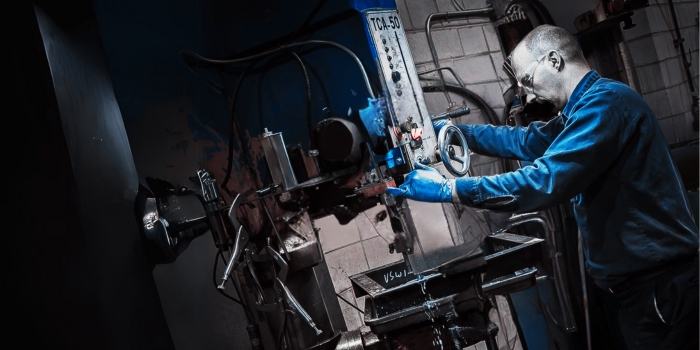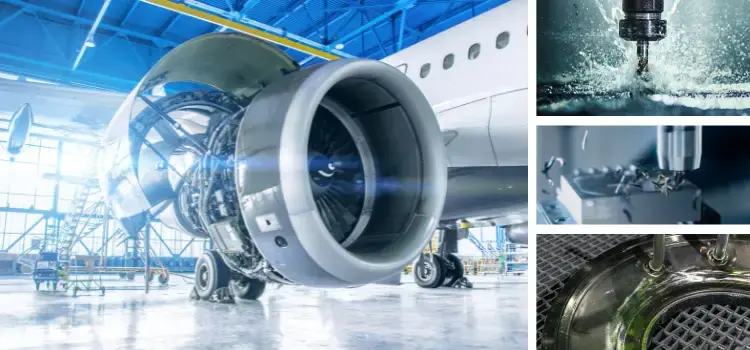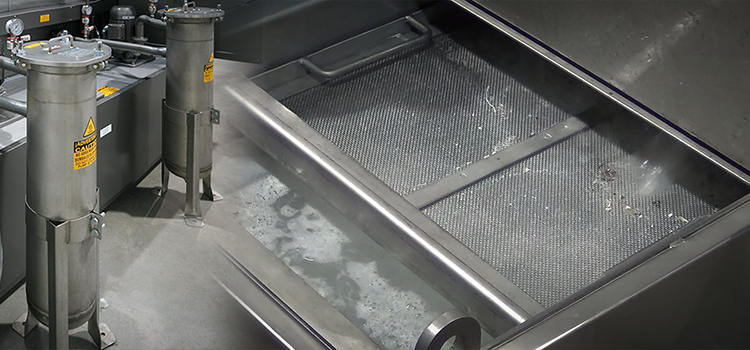In the world of industrial parts washing, efficiency is the name of the game.
Whether you're running a manufacturing plant or a remanufacturing facility, industrial part washing requires consistent cleaning results. However, a silent adversary often hampers industrial cleaning performance — hard water. In this blog, we'll dive into the impact of hard water on industrial cleaning and explore strategies to mitigate its effects.
THE HARD TRUTH: HOW HARD WATER AFFECTS INDUSTRIAL PARTS WASHING PERFORMANCE
Understanding Hard Water
Hard water contains high levels of dissolved minerals, primarily calcium and magnesium ions. These minerals are naturally present in the earth's crust and can find their way into water sources through geological processes. When used for cleaning, hard water can have several adverse effects that significantly impact performance. When used for rinsing, the quality of rinse water will affect the rinse's effectiveness because contaminants in the water can be left behind after evaporation.
- Soap Scum and Detergent Inefficiency
One of the most noticeable effects of hard water is its interaction with soap and detergents. The calcium and magnesium ions in hard water react with the chemicals in these cleaning agents, forming insoluble soap scum. This soap scum can adhere to surfaces, making it challenging to remove and leaving behind streaks and residues. As a result, more soap or detergent is required to achieve the same cleaning power, increasing costs, and wasting resources.
- Reduced Cleaning Effectiveness
Hard water can weaken the cleaning power of detergents and chemicals. The mineral ions can react with dirt and grime, creating a film that makes it difficult for cleaning agents to penetrate and dissolve soils. This reduced effectiveness can lead to longer cleaning times and subpar results, which is particularly problematic in time-sensitive industrial parts cleaning processes.
- Scaling and Equipment Damage
Over time, the minerals in hard water can accumulate on surfaces and inside the cleaning equipment, causing scaling. Scaling can clog pipes, valves, and nozzles, reducing water flow and compromising a parts washer’s cleaning efficiency. Mineral deposits not only affect the cleanliness of the workpieces, but they can cause corrosion on steel surfaces, leading to costly equipment repairs and downtime.
- Increased Maintenance Costs
Dealing with the effects of hard water necessitates increased maintenance efforts. Cleaning equipment such as tanks, nozzles, and heating systems must be regularly descaled to maintain their performance. Frequent replacement of components due to mineral buildup can strain an industrial parts cleaning budget, making it harder to allocate resources for other essential tasks.
Mitigating the Impact of Hard Water
Now that we understand the challenges posed by hard water in industrial parts washing, let's explore some strategies to mitigate its effects:
1. Measuring the conductivity of your incoming water can tell you if your water is clean enough. Generally, a hardness level of greater than 150 ppm is considered problematic.
2. Water Softening Systems: Install water softeners to remove calcium and magnesium ions from the water supply. Softened water improves cleaning performance and extends the equipment's lifespan.
3. Selecting Appropriate Cleaning Agents: Choose cleaning agents that are formulated to work effectively in hard water conditions. Products such as chelating agents are designed to minimize the adverse reactions between minerals and detergents.
4. Regular Equipment Maintenance: Implement a strict maintenance schedule for cleaning equipment to prevent scaling and reduce the risk of costly breakdowns.
5. Rinse Thoroughly: After cleaning, ensure thorough rinsing to remove any residual minerals and cleaning agents from surfaces. This will help prevent streaks and spots caused by hard water residues.
Conclusion
Hard water may be a common and often overlooked factor, but its impact on industrial parts washing performance is significant. By understanding its challenges and implementing the right strategies to mitigate its effects, industrial facilities can maintain a high standard of cleanliness, improve efficiency, and reduce operational costs. In the competitive world of industrial cleaning, addressing the hard water problem can be a game-changer.
Schedule a free consultation with the PROCECO team today.



